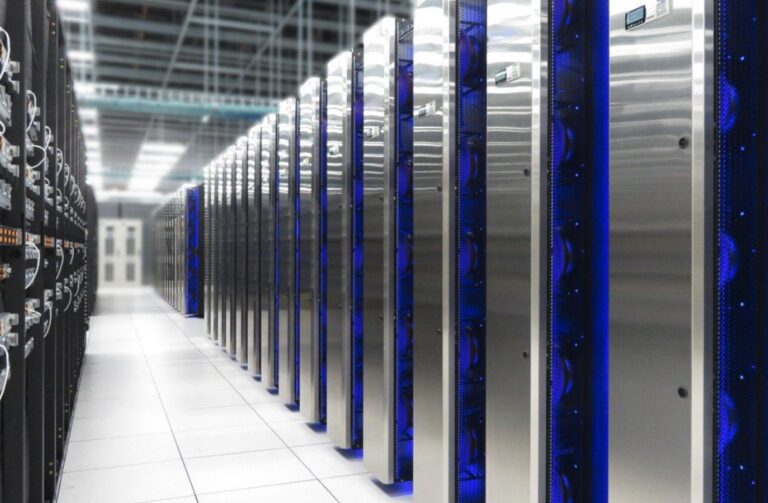Technology is the driving force of the modern world, and no one can deny this fact. In fact, human beings have accepted the fact that technology is more versatile and quicker than them. Supercomputers are one such excellent example of engineering.
The first ever supercomputer, CDC 6600, was designed by Seymour Cray. He is also known as the father of supercomputing. To date, there are around 570 supercomputers in the world, according to data fetched in June 2023. Supercomputers assist human beings in various purposes and are quite reliable. So, let’s know about supercomputing in detail.
Table of Contents
What is a supercomputer?
Perfectly capable of solving one quadrillion to one quintillion calculations per second, a supercomputer is a high-performance mainframe computer. It is indeed an impressive and highly precise machine that’s well-known for handling tons of data and complicated calculations at an exceptional pace.
A few examples of supercomputers are MDGRAPE-3, Belle, Gravity Pipe etc. What differentiates a supercomputer from a normal computer is its ability to interlink many processors within a single system. A supercomputer’s performance is not measured in million instructions per second (MIPS), but is measured instead in floating-point operations per second (FLOPS).
In fact, from 2017 to till date, we have supercomputers that can work at 10 to the power of 17 FLOPS. Therefore, supercomputers are widely used in the computational science field.
How does a supercomputer work?
Unlike traditional computers, supercomputers demand more than one CPU (central processing unit). Then, these central processing units are further grouped into computer nodes. The computer nodes are composed of a group of processors and a memory block. In fact, a supercomputer may have tens of thousands of computer nodes.
A supercomputer actually divides a task and distributes the same in different parts. From there on, it executes the divided parts of the task simultaneously. This method is called parallel processing and supercomputers work mainly based on this method. Caitlin Joann Ross, a research engineer at Kitware, mentioned that only parallel computing will allow us to use the superpower of supercomputers.
Use cases of supercomputer
Supercomputers are mostly used for superfast computations in the field of science and engineering. They serve as powerful tools in many other fields too. So, let’s discuss some of the most important use cases of supercomputers.
1. Nuclear fusion research
Many capable supercomputers are in the world, and Frontier and Summit are assigned the duty of nuclear fusion research. These two specialized computers will deal with creating simulations to optimize the performance in Plasma. They will also be used to predict the energy loss in plasma.
Scientists of the Oak Ridge National Laboratory and the University of California are trying to develop futuristic technology for fusion energy reactors using these high-performance computers.
2. Exploring the cosmos and space operations
Space research organizations use supercomputers to understand the cosmos and travel in space accordingly. These special computers receive and store data from a set of sensor-laden devices such as satellites, probes, robots and telescopes.
Then, these computers use the same stored data to simulate the outer conditions of space.
For example, NASA is using a supercomputer named Aitken to create high-resolution simulations that will be helpful for the upcoming Artemis missions.
3. Aviation works
Supercomputing is highly necessary to detect solar flares, predict turbulence, and know how aerodynamic loads affect a plane. This helps in building better airplanes. In fact, GE Aerospace used Frontier (the world’s best supercomputer) to test the fan engine architecture of commercial airplanes.
4. Medicinal research activities
One of the best supercomputing systems, Fugaku, mainly concentrates on COVID-19 and its related topics. Its main objective includes exploring drug patients, finding the conformational dynamics of proteins in the SARS-Cov-2 virus, etc. Fugaku also deals with carrying out calculations of FMO (fragment molecular orbital) for proteins of COVID-19.
Some other works of supercomputing systems are weather forecasting, climate research, genomic sequencing, studying new chemical compounds and cryptology. It is pretty clear that these special computers are capable of many crucial tasks in a very short span of time.
How fast is a supercomputer?
There is no doubt that supercomputing systems are a lot faster than normal desktops and laptops. Their operational speed is one of the main benefits of having them. Though these computers are expensive, the returns are worth the investment.
Frontier tops the list of TOP500 supercomputers with a speed of 1.102 ExaFlop/s. In simple terms, Frontier can do nearly 2 quintillion calculations every second when it’s in use. A supercomputing system has one million times more processing power than the world’s fastest laptop.
Some of the fastest supercomputing systems in the world right now are Fugaku of Japan, with a speed of more than 440 petaflops; Summit of IBM, with a speed of 149 petaflops; and Sierra, with a speed of around 95 petaflops.
So, this was all about supercomputing and how these systems work and benefit human beings in a wide range of fields. They are fast, reliable, versatile, and capable to the best of their potential. In fact, supercomputers will probably be so powerful in the future that they can do almost anything to everything in any field.
Read more: From spaceships to habitation: NASA’s groundbreaking technologies for sending people to Mars












